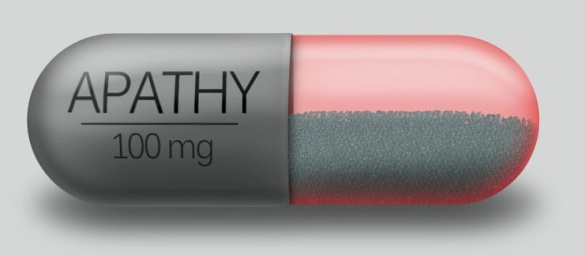During the Christmas season 2003, in the city of Kaduna in northern Nigeria, I had a spiritual epiphany on a public bus: I had become part of a society that had given up on some of those who needed society the most. It happened within 60 seconds that it took for a disabled person to board the bus. Those 60 seconds remain vividly engraved in my mind which recorded them as lasting more than 5 minutes.
After putting his crutches on the bus, he started to drag his body on his stomach along the floor of the bus. The same floor on which everyone else walked with their dirty shoes. Naturally, he soiled his clothes before his feet had even cleared the ground.
I sat in a corner of the bus, the ultra introvert, headphones plugging out the world but acutely aware of my surroundings. Suddenly, my mind settled and focused on the scene in front of me. As this disabled man tried to board, not a soul attempted to help him. Not the passengers within arm’s length on the bus, not the bus attendant (“Bus conductor” in Nigeria), and not any of the people who were at the bus stop with him.
What I found most disturbing was that the man wasn’t expecting anyone to help him. From the look on his face, it was evident that he had given up that people could be kind and offer a helping hand. My attention shifted to the role I was playing in this ‘movie’, another apathetic and unhelpful bystander. That realization jolted me out of my reverie. Standing from my seat, I anchored myself, took the man by his shoulders and pulled him into the bus and onto a seat. As I did this, I had my second aha moment: when I reached out, he first looked at me with bewilderment, then smiled as he let me assist him. My action seemed to jolt nearby passengers who shifted to make room so the he could sit comfortably. I vaguely remember another person helped him arrange his crutches.
When he alighted, others did help him. I spent the next two hours on my way to Zaria pondering how a person gets to that dark place where he gives up on society to be helpful. It’s been over ten years since, the experience remains a key moment of self-awareness and awakening for me. Whether I’d learnt anything from this experience, only time would tell.
Seven years later (2010) a similar incident happened – Madrid, Spain. Another bus stop, another group of people waiting to board and another disabled person waiting. When the bus finally stopped, it did so a bit far from the curb, leaving a gap between the curb so the man couldn’t simply roll his wheelchair in. That memory from 2003 came playing back in my mind, priming me to help. It turns out my French colleague had the same intention to help. As the man tried to maneuver his wheelchair onto the bus, my colleague and I lifted him and his wheelchair across the gap onto the wheelchair ramp in the bus (God bless politicians and city officials who think of the disabled). It wasn’t lost on me that the man’s first instinct was to do it himself, without asking for help.
I know that not all disabled people want to be ‘helped’ because it seems disempowering. I respect that. It doesn’t absolve us of our human responsibility to care for and be of service to the disabled whenever the need arises. There’s common sense, there’s also common good manners of human behaviour and helping, I believe that being of service is one of those.
I don’t think people wake up in the morning deciding not to care. It’s rather that we get so engrossed in our own worlds that we just stop noticing and lose awareness. Slowly but surely that builds into apathy. And as surely as there are un-served people in our society, that apathy will recursively feed on itself and explode to cover the vast lot of human social interactions in ways that will our undoing as a race.
Rev. John Watson (pseudonym name Ian MacLaren) famously wrote: “Be kind, everyone you meet is fighting some kind of battle”. Rendering service, engaging in common good manners make those battle less daunting. Be it getting on a bus as a disabled person or dreading a day in a dysfunctional office with a bad boss. In the end, we won’t remember the apathy of the masses, but we will remember the inaction of those who noticed, looked us in the eye in the moment of our need, then gave in to apathy. Choose not to be that person at the giving end of apathy today.
Image credits: https://www.indiegogo.com/projects/girl-justice-crowdfunding-that-empowers-women
